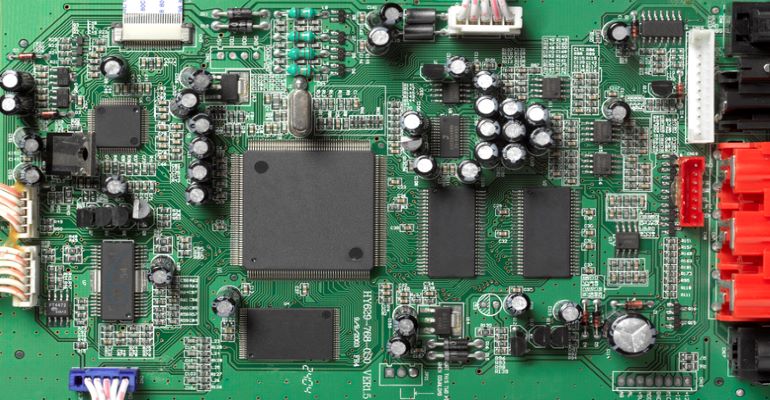Good News: Electronic Component Prices Stabilize as Inventories Ease
Report projects inventories and prices for many parts to ease this year, though shortages of automotive parts and programmable logic are likely to persist.

OEMS specifying and designing in electronic components have faced several years of parts shortage and skyrocketing part prices, forcing them to in some cases alter their design and procurement practices. But recent data from Supplyframe, a marketing research and consulting firm which monitors electronics supply-chain activity, indicates the worst may be over for OEMS, as well as their distribution and electronics manufacturing service (EMS) partners.
For the first quarter of 2023, Supplyframe’s Commodity IQ forecast projects the market will experience an 8% decline in the number of rising lead times and commodities with part allocations for active and passive electronic components. Commodity IQ’s Price Index for Q1 also expects a low double-digit decline in pricing. In addition, global electronic components demand and sourcing activities in Q1 are expected to be down by 2% from the previous quarter, while engineering design will be off by 20%– which Supplyframe stated indicates further demand erosion.
Memory Suppliers Hurting
To be sure, the improvements in part inventories and pricing vary widely by component. According to Commodity IQ, inventories are currently bloated for parts such as memory and small case-size ceramic capacitors. Memory supplier Micron, for instance, has seen falling demand for memory and recently cut 10% its workforce.
The downturn in the electronics industry that started last year has continued to linger into 2023, with no clear end in sight. Demand has fallen for products such as PCs and other consumer electronics, which has had ripple effects on the processor, memory, and display markets. Display suppliers have delayed investments in expanding plant capacity.
But other electronics components are still experiencing shortages, most notably automotive-grade microcontrollers and FPGAs which Supplyframe said remain far below their Commodity IQ Inventory Index baseline. The report also noted that supplies of analog integrated circuits (ICs), microcontrollers, and discrete ICs (especially power MOSFETs) remain constrained with prices expected to stay high.
Second Half Improvement Expected
The good news for OEMs is yet to come, with Supplyframe’s Commodity IQ index expecting 60% of lead times for electronic components to decrease by the third quarter. The report projects no further part price hikes, as opposed to 73% of parts seeing price increases the third quarter of 2022.
But the Commodity IQ index expects extended lead times to endure into the second half for semiconductors, including programmable logic devices and passive components like automotive-specific resistors.
Suppyframe expects IC orders, wafer starts, and capacity utilization will begin to rise and memory pricing will bottom out the second half of this year. DRAM prices are slated to reverse their steep price declines in the third quarter, with NAND prices ollow in the fourth quarter or early in 2024.
The improving inventory and pricing outlook, at least for some electronic components, was not unexpected. Last April, Omdia analyst Michael Yang predicted that chip inventory shortages would reverse course by 2023, and he was on-target particularly on commodity parts such as memory.
Design engineers that have had to specify alternative electronic components and extend design cycles stand to particularly benefit from the improving price and inventory situation. Still, these engineers will have to deal with shortages of programmable and logic devices, MCUs, and analog parts for the foreseeable future.
Forecasting Remains Difficult
Any hint that more normal conditions are returning to the electronics industry would improve the mood among suppliers, many of whom are dealing with inventory corrections and lagging profits in recent quarters. But the volatile global geo-political situation could derail the industry at a moment’s notice.
“New Commodity IQ insights, the resilience of world economies to inflation and threats of recession, and China’s reopening economy in the second half suggest there is reason to be optimistic,” said Supplyframe CEO and founder Steve Flagg in a statement. “Commodity IQ indicates that component availability has improved in large part, and prices across many commodities and sub commodities have stabilized. But electronic component lead times remain longer than historical norms. And in this age of macroeconomic uncertainty, where it is becoming increasingly difficult to forecast demand amid mixed end-market signals, further intensification of the Russia-Ukraine war, continuing COVID-19 challenges in China, or any number of other disruptions could emerge.”
Spencer Chin is a Senior Editor for Design News covering the electronics beat. He has many years of experience covering developments in components, semiconductors, subsystems, power, and other facets of electronics from both a business/supply-chain and technology perspective. He can be reached at [email protected].
About the Author(s)
You May Also Like





